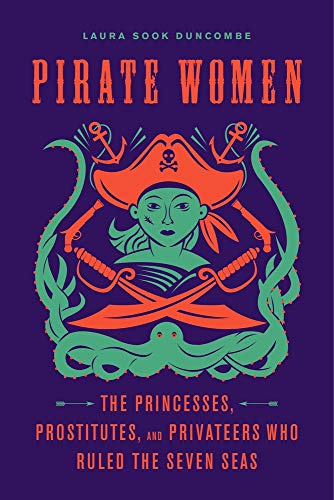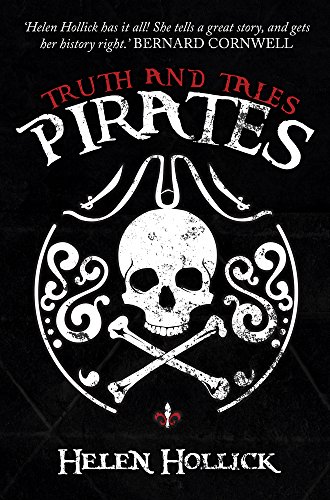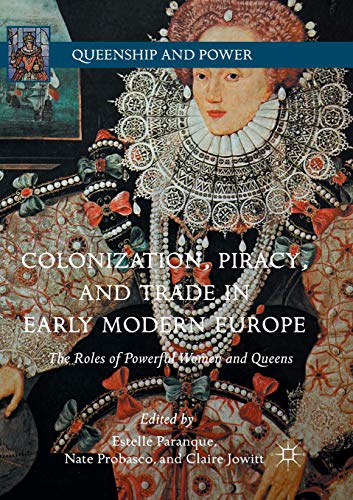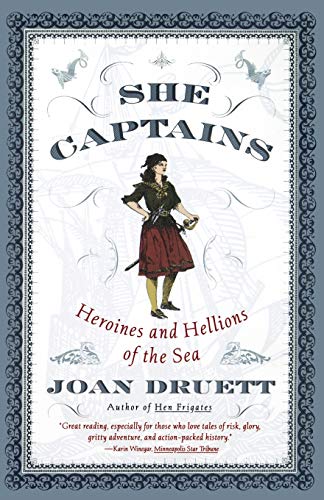
1

2

3

4

5
My recommendations on the books, dealing with women in piracy from various perspectives. Number one, written by Laura Sook Duncombe, is the newest addition to my selection of reliable and non-sensationalist sources. As the title suggests, Duncombe does not explore exclusively female pirates throughout history, but she also gives the reader a goodly portion of debate concerning other ‘professions’ tied to maritime piracy, following the latest trend in this field. The book is written from a slightly feminist perspective and it is extremely readable, especially for the young adult audience and, generally, for all newcomers interested in this topic. Number two is a book written by a veteran of a popular scholarly book on piracy, David Cordingly, and it is safe to say that he is among the most respected authorities on piracy in general. Predictably, Cordingly’s book is more scholarly in its tone and nature, presenting a more complex theme of seafaring women in general, so it is not revolving predominantly around female pirates, but the book is undoubtedly an essential work, which helps the reader to understand the whole connection between women and naval history, including the complicated plot of female pirates. Number three is an interesting addition to my list of books, penned by Helen Hollick, who maybe perhaps better known as an author of several historical and piratical novels. However, this book is pure non-fiction history, dealing with the history of pirates in general, but with a special emphasis on women pirates, presenting them as rebellious figures, escaping or opposing the clutches of their normative social conventions. Hollick is a seasoned writer, and her book is very accessible to the general public, presenting female pirates both as being part of the bigger narrative of piracy, but, on the other hand, trying to find a unique voice for all female pirates. Number four is a book edited by Claire Jowiit, who is one of the foremost scholarly experts on piracy, and, most specifically, on its cultural and political dimensions between the 16th and the 17th centuries, covering the infamous era of so-called ‘Elizabethan Sea-Dogs’. As such, Jowitt presents in this book a collection of essays from academics, writing about important aspects of piracy, trade, and colonisation, highlighting key roles of powerful women in the realm of Early Modern Europe. So, while the majority of books on women in piracy tend to explore this topic rather from the bottom classes of pirates, wives, widows, prostitutes and etc., this book approaches it from the perspective of the most powerful and prominent women involved. Due to its scholarly and topical nature, this book can be quite demanding, though extremely enriching one’s knowledge about this subject. Number five is the last recommendation, but certainly no less useful than the previous ones. Joan Druett’s book is a well-researched overview of women’ s roles and representations throughout maritime history, chronicling memorable female characters and providing the reader with facts-based, though readable material in separated chapters. Whilst famous names like Anne Bony or Mary Read get even two full chapters, Druett also introduces the reader to lesser-known women involved in piracy, sharing their stories and debating about their reasons and motivations for joining the ranks of pirates. Aside from pirates, however, Druett recounts other no-less important cases of seafaring women in history.
1
2
3
4
5

1

2

3

4

5
© Five Books 2026